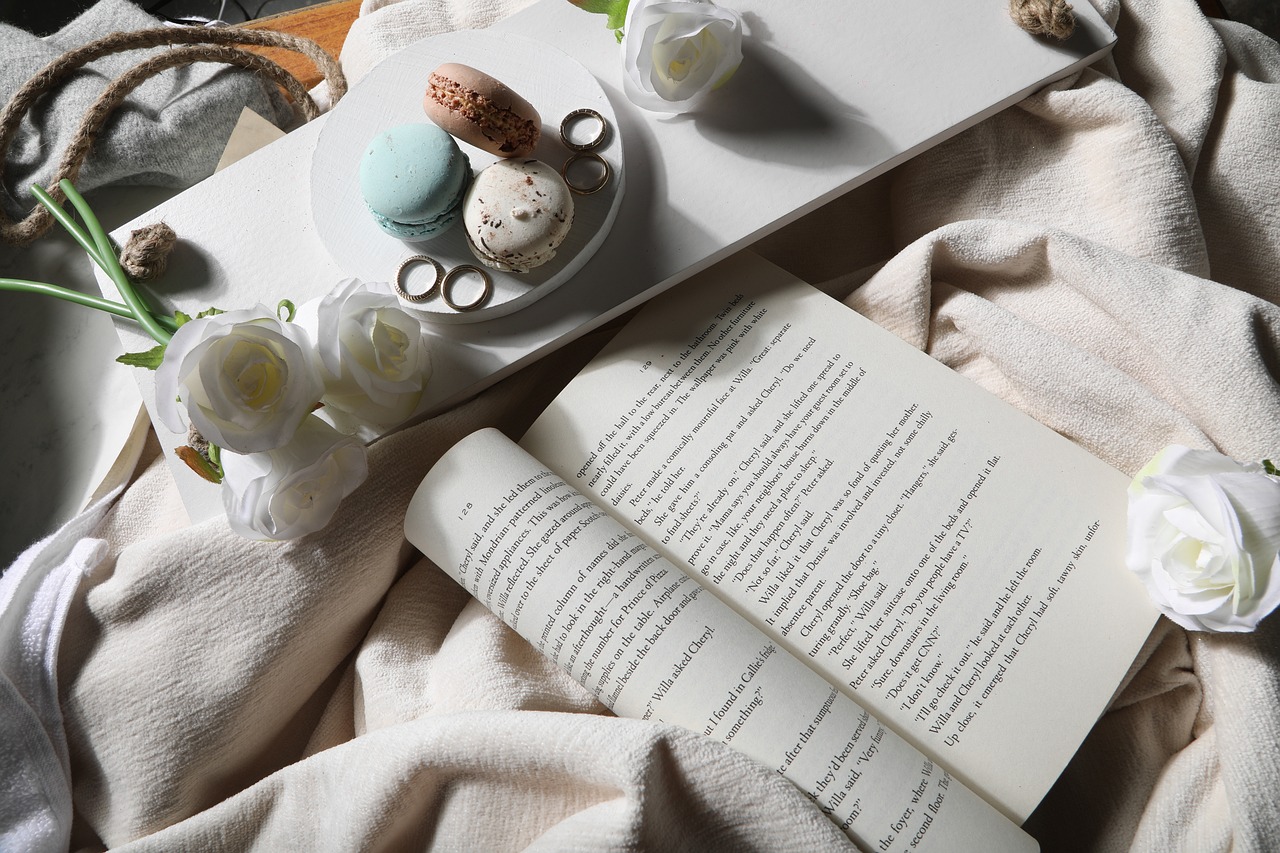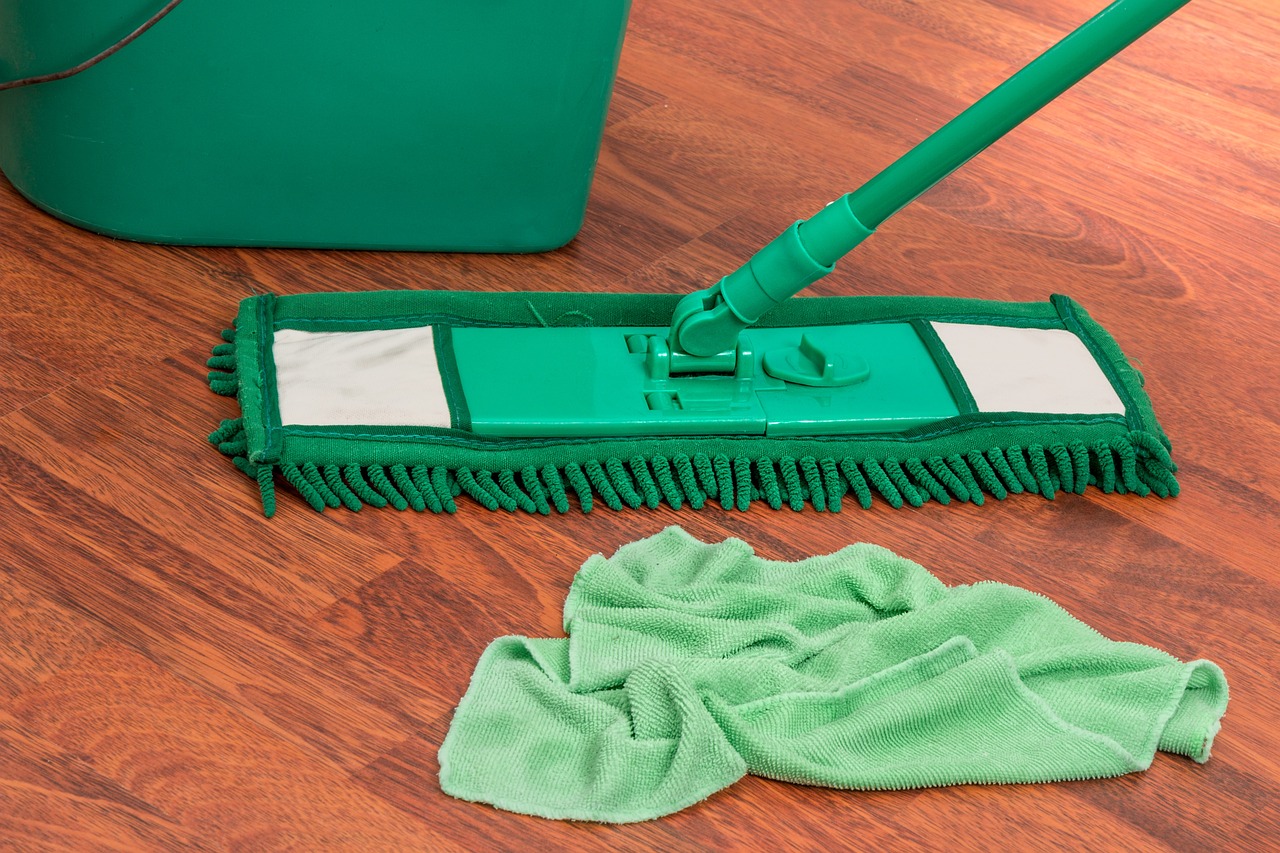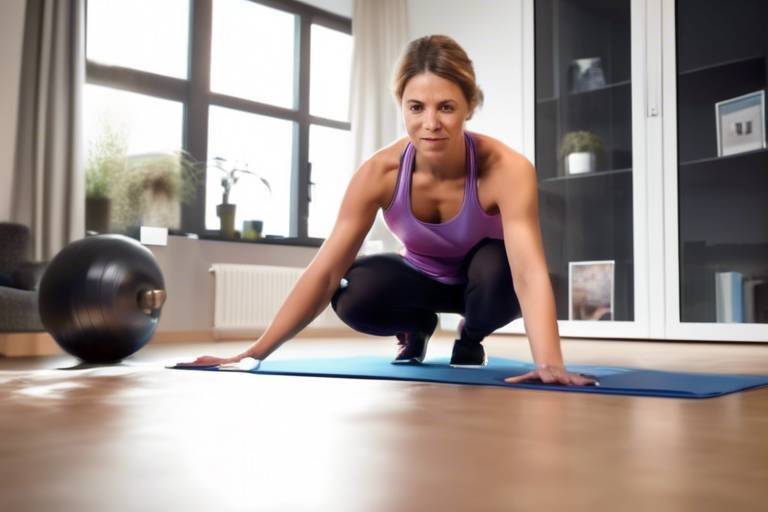The Role of Routine in Reducing Anxiety
In today's fast-paced world, anxiety can feel like an ever-present companion, lurking in the shadows of our daily lives. But what if I told you that establishing a daily routine could be your secret weapon against this overwhelming feeling? Routines provide a sense of structure and predictability, which can be incredibly comforting when the world around us seems chaotic. Think of a routine as a sturdy anchor in a stormy sea; it keeps you grounded and focused, allowing you to navigate through life's uncertainties with greater ease. By incorporating a daily routine, you can create a framework that not only helps manage anxiety but also enhances your overall well-being.
Imagine waking up each morning with a clear plan in mind. You know exactly what your day looks like, from the moment you rise to the time you go to bed. This predictability can significantly lessen the feelings of overwhelm that often accompany anxiety. When you have a structured routine, you’re less likely to feel lost or uncertain about what to do next. Instead, you can focus on the tasks at hand, allowing your mind to rest from the constant chatter of "What should I do now?" or "Am I forgetting something?" This clarity and focus can lead to improved productivity and a greater sense of accomplishment, which are essential in combating anxiety.
Moreover, routines foster a sense of control over your life. When anxiety strikes, it often stems from a feeling of helplessness or lack of control. By establishing daily habits, you’re actively taking charge of your day, which can be empowering. Each completed task, no matter how small, is a victory that reinforces your ability to handle challenges. You might even find that setting aside specific times for relaxation or self-care within your routine can further enhance your mental resilience.
Incorporating routines into your life doesn’t have to be rigid or overwhelming. It’s about finding what works for you and creating a rhythm that feels natural. Whether it’s a morning coffee ritual, a dedicated time for exercise, or a nightly wind-down routine, these small habits can accumulate to create a significant impact on your mental health. The beauty of a routine is that it can be tailored to fit your lifestyle, preferences, and needs.
As we dive deeper into the benefits of routine, it’s essential to recognize that while structure is vital, flexibility is equally important. Life is unpredictable, and sometimes, the best-laid plans can go awry. Allowing yourself the grace to adapt your routine when necessary can prevent feelings of frustration and anxiety. Remember, it’s not about perfection; it’s about progress.
Having a structured routine helps individuals manage their time effectively, reducing feelings of overwhelm and anxiety by creating a predictable environment that fosters stability and focus. Just like a well-tuned orchestra, where each instrument plays its part in harmony, a structured routine allows each aspect of your life to flow smoothly, creating a beautiful symphony of productivity and peace.
Maintaining consistency in daily activities helps to reinforce positive habits, leading to improved mental health outcomes and reduced anxiety levels through the power of repetition and familiarity. Just think about how comforting it is to have a favorite song that you can play on repeat; it brings a sense of joy and nostalgia. Similarly, consistent routines can evoke feelings of comfort and security in our daily lives.
Incorporating mindfulness practices into daily routines can enhance awareness and presence, allowing individuals to better manage anxiety by focusing on the here and now rather than future uncertainties. Mindfulness acts as a gentle reminder to pause, breathe, and appreciate the moment, transforming the mundane into something meaningful.
Activities such as meditation, deep breathing exercises, or mindful walking can be integrated into daily routines, providing moments of calm and clarity amidst a busy day. These practices not only help in reducing anxiety but also cultivate a deeper connection with oneself, leading to greater self-awareness and emotional regulation.
Simple techniques, like setting aside a few minutes each day for mindfulness, can significantly impact anxiety levels, promoting relaxation and mental clarity. Even a short five-minute meditation can serve as a reset button for your mind, allowing you to approach the rest of your day with renewed energy and focus.
While routines provide structure, it’s essential to allow for flexibility, enabling individuals to adapt their schedules to changing circumstances without feeling overwhelmed or anxious. Think of your routine as a river; it flows and bends, but it always finds its way. Embracing flexibility within your routine can lead to a more balanced and less stressful lifestyle.
Establishing a bedtime routine can improve sleep quality, which is crucial for managing anxiety, as adequate rest helps regulate emotions and enhances overall mental well-being. A good night’s sleep is like a reset for your brain, allowing you to tackle the challenges of the day ahead with a clearer mind and a more positive outlook.
Creating a calming pre-sleep routine, such as limiting screen time and engaging in relaxing activities, can promote better sleep hygiene, thus reducing anxiety levels. Imagine preparing for a big event; you wouldn’t just show up unprepared. Similarly, preparing your mind and body for sleep can set the stage for a restful night.
Maintaining a balanced diet and regular meal times can play a significant role in stabilizing mood and energy levels, further aiding in the management of anxiety through proper nutrition. Just like fueling a car, your body needs the right nutrients to function optimally. When you nourish yourself properly, you’re better equipped to face the challenges of the day.
- How long does it take to establish a routine? - It varies for everyone, but consistency over a few weeks can help solidify your new habits.
- Can routines really help with anxiety? - Yes! Routines provide structure and predictability, which can significantly reduce anxiety levels.
- What if my routine feels too rigid? - Flexibility is key! Adjust your routine as needed to fit your lifestyle and preferences.
- Are there specific activities that are best for mindfulness? - Activities like meditation, yoga, or even mindful breathing can be incredibly effective.

The Importance of Structure
In our fast-paced world, where unpredictability seems to lurk around every corner, establishing a structured routine can be a game-changer for managing anxiety. Think of your daily routine as a sturdy bridge that connects the chaos of life to a calmer, more controlled environment. When you have a clear plan for your day, it’s like having a map in an unfamiliar city. You know where you’re going, and that knowledge can significantly reduce feelings of overwhelm and uncertainty.
Having a structured routine allows individuals to manage their time effectively. Imagine waking up each morning with a set of tasks to accomplish; this clarity can provide a sense of purpose. It’s not just about filling up your day with activities; it’s about creating a predictable environment that fosters stability and focus. When you know what to expect, your mind can relax, freeing up mental space for creativity and problem-solving rather than worrying about what comes next.
Moreover, structure plays a crucial role in reinforcing positive habits. When you consistently follow a routine, you begin to create a rhythm in your life. This rhythm can lead to a sense of accomplishment, as you tick off tasks from your to-do list. Over time, this repetition can create a comforting familiarity, which has a profound impact on mental health. Here’s how:
- Reduced Overwhelm: A structured routine can help break down your day into manageable segments, making it easier to tackle tasks without feeling swamped.
- Enhanced Focus: With a clear plan, you can concentrate on one task at a time, leading to increased productivity and less mental clutter.
- Improved Time Management: Knowing what you need to do and when allows you to allocate your time wisely, reducing the stress of last-minute rushes.
In essence, the importance of structure in our daily lives cannot be overstated. It’s about creating a foundation that supports your mental well-being. By providing a sense of control and predictability, a structured routine can act as a buffer against the anxiety that often arises from uncertainty. So, if you’re feeling overwhelmed, consider taking a step back and evaluating your daily habits. Is there a way to introduce more structure into your life? The answer might just be the key to unlocking a calmer, more focused you!

When it comes to managing anxiety, consistency is a game changer. Think about it: when you wake up each day with a clear plan, it’s like having a map in an unknown territory. You know where you’re headed, and that sense of direction can significantly diminish feelings of uncertainty and stress. By maintaining a consistent routine, you create a familiar environment where your mind can feel at ease, allowing you to focus on what truly matters.
One of the most significant benefits of consistency is the reinforcement of positive habits. Just like a well-tended garden flourishes with regular care, your mental health can thrive when you engage in beneficial activities consistently. For instance, if you set aside time each day for exercise, meditation, or even just a quiet moment with a book, these habits become ingrained in your daily life. Over time, they contribute to a more stable mood and a reduction in anxiety levels. The repetition of these activities creates a comforting rhythm, much like the soothing sound of ocean waves, which can help to calm the mind.
Moreover, consistency fosters a sense of predictability. In a world that can often feel chaotic and unpredictable, having a routine provides a reliable framework. Imagine stepping into a cozy café where the barista knows your order by heart. That familiarity brings a sense of belonging and comfort, which can be incredibly grounding when anxiety tries to take hold. By establishing a daily routine, you cultivate an environment where you can anticipate what comes next, allowing you to navigate your day with greater ease.
It's also worth noting that consistency can lead to improved self-discipline. When you commit to a routine, you are essentially training your brain to adhere to a schedule, which can translate into other areas of your life. For example, sticking to a morning routine can enhance your productivity throughout the day. You might find that you’re more focused at work or school, and less likely to get sidetracked by anxious thoughts. This boost in self-discipline not only helps manage anxiety but also builds confidence. You start to realize that you have the power to shape your day, which is a liberating feeling.
In conclusion, the benefits of consistency in your daily routine are profound. By creating a structured environment, reinforcing positive habits, and fostering predictability, you pave the way for reduced anxiety and improved mental well-being. So, why not take a moment to evaluate your current routine? Are there areas where you can introduce more consistency? Remember, even small changes can have a significant impact. Embrace the power of consistency and watch as your anxiety begins to lessen, allowing you to live more fully in the moment.
- How long does it take to see the benefits of a consistent routine? Many people notice improvements within a few weeks, but it can vary depending on individual circumstances.
- Can I still have flexibility in my routine? Absolutely! While consistency is important, it’s equally vital to allow for adjustments as needed.
- What if I struggle to maintain consistency? Start small! Focus on incorporating one or two consistent habits into your routine before gradually adding more.
In our fast-paced world, where distractions lurk around every corner, incorporating mindfulness into our daily routines can be a game changer. Imagine starting your day with a few moments of calm rather than diving headfirst into the chaos of emails and notifications. Mindfulness isn't just a buzzword; it's a practice that encourages us to be present, to savor each moment, and to cultivate a sense of awareness that can significantly reduce anxiety. When we intentionally integrate mindfulness into our routines, we create pockets of peace that allow us to step back from the whirlwind of life and reconnect with ourselves.
So, how do we weave mindfulness into our everyday lives? It can be as simple as taking a few deep breaths before jumping into our tasks or setting aside a few minutes for meditation. The beauty of mindfulness lies in its versatility; it can be tailored to fit any routine. For instance, you might choose to practice mindfulness during your morning coffee, paying attention to the aroma and taste, or while walking to work, noticing the sensations in your body and the world around you. This practice not only grounds us but also helps to cultivate a sense of gratitude and appreciation for the little things that often go unnoticed.
Additionally, incorporating mindfulness into your routine can help to create a buffer against the inevitable stressors of life. By training our minds to focus on the present moment, we can learn to detach from the worries of tomorrow or the regrets of yesterday. This shift in perspective can lead to a profound reduction in anxiety levels, allowing us to approach challenges with a clearer mind and a calmer heart. It’s like having a mental reset button that we can press whenever we feel overwhelmed.
Here are a few mindful activities that can easily be integrated into your routine:
- Meditation: Just a few minutes of focused breathing or guided meditation can set a positive tone for the day.
- Deep Breathing Exercises: Taking intentional breaths can help to reduce tension and promote relaxation.
- Mindful Walking: Transform your daily walk into a mindful experience by paying attention to your surroundings and your body.
Incorporating these activities into your daily routine doesn’t have to be a chore. Think of them as little gifts you give to yourself—moments where you can pause, reflect, and recharge. By making mindfulness a non-negotiable part of your day, you cultivate a sanctuary of calm amidst the chaos, empowering you to face life with a more balanced and resilient mindset.
1. What is mindfulness?
Mindfulness is the practice of being present and fully engaged in the moment, without judgment. It involves paying attention to your thoughts, feelings, and surroundings in a calm and focused manner.
2. How can I start practicing mindfulness?
You can start by dedicating a few minutes each day to mindfulness activities like meditation, deep breathing, or simply observing your environment without distractions.
3. Can mindfulness really reduce anxiety?
Yes! Numerous studies suggest that practicing mindfulness can help lower anxiety levels by promoting relaxation and helping individuals manage their thoughts and emotions more effectively.
4. How often should I practice mindfulness?
Consistency is key! Aim to practice mindfulness daily, even if it’s just for a few minutes. Over time, you’ll likely notice significant benefits to your mental well-being.
When it comes to incorporating mindfulness into your daily routine, the options are as varied as they are effective. Mindful activities can serve as a powerful antidote to the chaos of everyday life, helping you to center your thoughts and find calm amidst the storm. One popular activity is meditation. Just a few minutes of focused breathing can ground you, allowing you to disconnect from the noise of the outside world and tune into your inner self. Imagine sitting in a serene garden, the gentle rustle of leaves around you as you focus on your breath—this is the essence of mindfulness.
Another effective practice is deep breathing exercises. These can be done anywhere, whether you're at home, in the office, or even during your commute. Try inhaling deeply through your nose for a count of four, holding for four, and then exhaling through your mouth for a count of six. This simple technique not only calms your mind but also reduces physical tension in your body. It’s like hitting the reset button on your stress levels!
Moreover, you can incorporate mindful walking into your routine. This isn’t just about moving from point A to point B; it’s about being fully present with each step you take. Feel the ground beneath your feet, notice the rhythm of your breath, and observe the world around you. You might be surprised by how much beauty you can spot when you’re not distracted by your phone or racing thoughts. It transforms a mundane activity into a rich experience.
In addition to these activities, you might consider journaling as a way to practice mindfulness. Taking time to write down your thoughts can help you process emotions and reflect on your day. You could jot down things you’re grateful for or simply describe your feelings in the moment. This practice not only enhances self-awareness but also allows you to release pent-up anxieties onto the page.
Ultimately, the key to these mindful activities is consistency. By integrating them into your daily routine, you create pockets of peace that can significantly diminish anxiety levels. Remember, mindfulness is not about perfection; it’s about being present. So, whether you choose to meditate, breathe deeply, walk mindfully, or write in a journal, the most important thing is to make it a regular part of your life.
- What is mindfulness? Mindfulness is the practice of being fully present and engaged in the moment, free from distraction or judgment.
- How often should I practice mindfulness? It’s beneficial to practice mindfulness daily, even if just for a few minutes.
- Can mindfulness really help reduce anxiety? Yes, numerous studies show that mindfulness practices can significantly lower anxiety levels by promoting relaxation and emotional regulation.
- Do I need special equipment to practice mindfulness? No special equipment is needed; you can practice mindfulness anywhere and at any time.
Practicing mindfulness doesn't have to be a chore; in fact, it can be as simple as taking a few moments each day to reconnect with yourself. One of the most effective ways to incorporate mindfulness into your routine is to set aside a specific time each day dedicated to this practice. Think of it like watering a plant; if you forget to do it, the plant wilts. Similarly, your mental well-being needs that daily nourishment. Start with just five minutes—it's manageable and won't feel overwhelming.
Another essential tip is to find a comfortable space where you can practice mindfulness without distractions. This could be a cozy corner of your home, a quiet park, or even your car during a break. The key is to create an environment that feels safe and inviting, allowing you to focus on the present moment. You might even consider adding elements that enhance your experience, such as calming scents from essential oils or soft background music.
When you're ready to begin your mindfulness practice, try to engage your senses fully. Pay attention to what you can see, hear, feel, and even smell. This sensory engagement can ground you in the moment and help alleviate racing thoughts about the past or future. For example, if you’re outside, notice the colors of the leaves, the sound of the wind, or the warmth of the sun on your skin. These small observations can pull you back into the here and now.
Additionally, consider integrating mindfulness into everyday activities. You don’t always have to sit in silence to practice mindfulness. You can be mindful while washing dishes, taking a shower, or even during your morning commute. Focus on the motions, the sensations, and the experience, rather than letting your mind wander. This approach transforms mundane tasks into opportunities for mindfulness, making it easier to incorporate into your daily routine.
Lastly, remember that mindfulness is a skill that takes practice. Be patient with yourself and celebrate small victories along the way. If your mind wanders during your practice, gently guide it back without judgment. Think of it as training a puppy; it takes time and consistency, but the bond you build with yourself through mindfulness can be incredibly rewarding.
- What is mindfulness? Mindfulness is the practice of being present and fully engaged in the moment, without judgment. It involves focusing on your thoughts, feelings, and surroundings.
- How long should I practice mindfulness each day? Starting with just 5-10 minutes daily can be effective. As you become more comfortable, you can gradually increase the time.
- Can mindfulness help with anxiety? Yes, mindfulness can be a powerful tool for managing anxiety by helping individuals focus on the present rather than worrying about the future.
- Do I need special training to practice mindfulness? No special training is required. You can start practicing mindfulness on your own using guided meditations or mindfulness apps.
While having a structured routine is undeniably beneficial for managing anxiety, it’s equally important to remember that life is often unpredictable. Imagine trying to navigate a river with rigid oars; sometimes, you need to let the current guide you. This is where flexibility in our routines comes into play. Adapting our schedules allows us to respond to unexpected changes without feeling overwhelmed. It’s like dancing to the rhythm of life—sometimes you lead, and other times you follow.
Flexibility doesn’t mean abandoning your routine altogether; rather, it encourages a more fluid approach. For instance, if you typically allocate an hour for exercise but find yourself with an unexpected commitment, consider adjusting your workout to a shorter, more intense session. This way, you maintain your commitment to physical health without derailing your entire day. Think of it as a mental adjustment—a way to keep your goals intact while accommodating life's surprises.
Moreover, incorporating flexibility into your routine can enhance your sense of control. When you allow for adjustments, you're actively participating in shaping your day. This proactive stance can significantly reduce feelings of anxiety. Instead of viewing changes as disruptions, you begin to see them as opportunities for growth and adaptation. For example, if a planned social event gets canceled, instead of spiraling into disappointment, why not use that time for a self-care activity? Whether it’s reading a book, practicing a hobby, or simply enjoying a quiet moment, these choices empower you.
To help you embrace flexibility, consider the following tips:
- Prioritize Tasks: Identify which activities are essential and which can be adjusted or postponed.
- Set Time Blocks: Instead of rigidly scheduling every minute, allocate broader time blocks for tasks, allowing for adjustments as needed.
- Practice Self-Compassion: Remind yourself that it’s okay to deviate from your plan. Life is about balance.
Incorporating these strategies can transform your approach to daily routines. Flexibility invites a sense of adventure into the mundane, allowing you to navigate through life’s uncertainties with grace. So, the next time your day doesn’t go as planned, take a breath, adjust your sails, and remember that it’s all part of the journey.

Sleep hygiene is often an overlooked aspect of our daily routines, yet it plays a crucial role in managing anxiety and promoting overall mental well-being. When we talk about sleep hygiene, we're referring to a series of practices that are aimed at enhancing the quality of our sleep. Think of it as setting the stage for a great performance; if the stage isn't right, the show won't go on smoothly. Just like a concert needs a well-prepared venue, our bodies need a conducive environment to rest and recharge.
Establishing a bedtime routine is one of the most effective ways to improve sleep hygiene. This routine signals to your body that it's time to wind down and prepare for sleep. Imagine your body as a smartphone; if you keep it plugged in and running all day without a break, it eventually slows down and may even crash. Similarly, without proper rest, our minds can become cluttered, leading to increased anxiety levels.
To create an effective bedtime routine, consider incorporating the following practices:
- Limit Screen Time: The blue light emitted by screens can interfere with your body's natural sleep-wake cycle. Aim to put away your devices at least an hour before bedtime.
- Engage in Relaxing Activities: Whether it’s reading a book, taking a warm bath, or practicing gentle yoga, find activities that help you unwind.
- Create a Comfortable Sleep Environment: Ensure your bedroom is dark, quiet, and at a comfortable temperature to promote better sleep.
By adhering to these practices, you not only improve your sleep quality but also create a sense of predictability in your life. This predictability can significantly reduce feelings of anxiety, as our brains thrive on routine. Just like a well-oiled machine, our minds function better when we provide them with the necessary downtime they need to reset and recharge.
Moreover, the impact of sleep on our emotional regulation cannot be understated. Research shows that lack of sleep can heighten feelings of stress and anxiety. When we are well-rested, we are better equipped to handle the challenges that life throws our way. It’s like having a well-stocked toolbox; when you have the right tools, you can tackle any problem with confidence.
In conclusion, prioritizing sleep hygiene is not just about getting enough rest; it's about creating a holistic approach to managing anxiety. By establishing a consistent bedtime routine and making sleep a priority, you can foster a healthier, more balanced life. Remember, your mental health deserves the same attention and care that you give to your physical health.
Q: How long should my bedtime routine be?
A: Ideally, your bedtime routine should last about 30-60 minutes, allowing your body to transition from the hustle and bustle of the day into a state of relaxation.
Q: Can I use my phone as part of my bedtime routine?
A: While some apps can help with relaxation, it's best to avoid screens altogether. Instead, consider using your phone for calming music or meditation apps, but turn off any notifications that could disrupt your peace.
Q: What if I have trouble falling asleep?
A: If you find yourself struggling to fall asleep, try getting out of bed and engaging in a quiet activity until you feel sleepy. This helps to associate your bed with sleep rather than restlessness.
This article explores how establishing a daily routine can significantly alleviate anxiety symptoms, providing structure, predictability, and a sense of control in an often chaotic world.
Having a structured routine helps individuals manage their time effectively, reducing feelings of overwhelm and anxiety by creating a predictable environment that fosters stability and focus.
Maintaining consistency in daily activities helps to reinforce positive habits, leading to improved mental health outcomes and reduced anxiety levels through the power of repetition and familiarity.
Incorporating mindfulness practices into daily routines can enhance awareness and presence, allowing individuals to better manage anxiety by focusing on the here and now rather than future uncertainties.
Activities such as meditation, deep breathing exercises, or mindful walking can be integrated into daily routines, providing moments of calm and clarity amidst a busy day.
Simple techniques, like setting aside a few minutes each day for mindfulness, can significantly impact anxiety levels, promoting relaxation and mental clarity.
While routines provide structure, it’s essential to allow for flexibility, enabling individuals to adapt their schedules to changing circumstances without feeling overwhelmed or anxious.
Establishing a bedtime routine can improve sleep quality, which is crucial for managing anxiety, as adequate rest helps regulate emotions and enhances overall mental well-being.
Creating an effective sleep routine is like crafting a personalized recipe for relaxation. Just as a chef carefully selects ingredients to create the perfect dish, you need to choose specific actions that signal to your body that it’s time to wind down. Start by setting a consistent bedtime and wake-up time, even on weekends. This consistency helps regulate your body’s internal clock, making it easier to fall asleep and wake up feeling refreshed.
Consider incorporating calming activities into your pre-sleep routine. For instance, you might enjoy reading a book, practicing gentle yoga, or taking a warm bath. These activities can help ease your mind and prepare your body for sleep. Additionally, it’s essential to create a sleep-friendly environment. Make your bedroom a sanctuary by keeping it cool, dark, and quiet. You might even want to invest in blackout curtains or a white noise machine if external disturbances are an issue.
Another critical aspect of an effective sleep routine is limiting screen time before bed. The blue light emitted by phones, tablets, and computers can interfere with your body’s natural sleep-wake cycle. Instead of scrolling through social media or binge-watching your favorite shows, try engaging in activities that promote relaxation. Here’s a quick overview of effective sleep routine components:
- Consistent Sleep Schedule: Go to bed and wake up at the same time daily.
- Calming Pre-Sleep Activities: Read, meditate, or take a warm bath.
- Sleep-Friendly Environment: Keep your bedroom cool, dark, and quiet.
- Limit Screen Time: Avoid screens at least an hour before bedtime.
By incorporating these elements into your nightly routine, you create a powerful tool for combating anxiety. Remember, the goal is to cultivate a sense of peace and relaxation that allows your mind to let go of the day’s stressors. Over time, these practices can lead to improved sleep quality and, consequently, a reduction in anxiety levels.
- How long does it take to establish a new routine? It typically takes about 21 to 30 days to form a new habit, but this can vary depending on the individual.
- What if my routine gets disrupted? It’s essential to be flexible. If your routine is disrupted, try to adapt and get back on track as soon as possible.
- Can mindfulness really help with anxiety? Yes, mindfulness practices can significantly reduce anxiety by helping you focus on the present moment and manage stress more effectively.
- How can I improve my sleep quality? Establish a calming bedtime routine, limit screen time, and create a comfortable sleep environment to enhance sleep quality.
When it comes to managing anxiety, one of the often-overlooked aspects is nutrition. What we put into our bodies can significantly influence our mood, energy levels, and overall mental health. Imagine your body as a high-performance vehicle; just like a car needs the right fuel to run smoothly, our brains require proper nutrition to function optimally. A balanced diet, rich in essential nutrients, not only supports physical health but also plays a crucial role in stabilizing our emotions and reducing anxiety.
Moreover, establishing a routine around meals can provide additional structure in our daily lives. Regular meal times create a sense of predictability, which is vital for those struggling with anxiety. When your body knows when to expect food, it helps regulate blood sugar levels, preventing those dreaded energy crashes that can lead to irritability and heightened anxiety. Think of meal times as anchors in your day, providing stability in an otherwise chaotic environment.
Research shows that certain nutrients can have a profound impact on our mental health. For instance, omega-3 fatty acids, found in fish like salmon and walnuts, are known to support brain function and reduce symptoms of anxiety. Similarly, foods rich in antioxidants, such as berries and leafy greens, combat oxidative stress, which can negatively affect our mood. To give you a clearer picture, here's a simple table illustrating some key nutrients and their sources:
| Nutrient | Sources | Impact on Anxiety |
|---|---|---|
| Omega-3 Fatty Acids | Salmon, walnuts, flaxseeds | Supports brain health and reduces anxiety symptoms |
| Magnesium | Spinach, almonds, avocados | Helps regulate neurotransmitters and promotes relaxation |
| Vitamin D | Fatty fish, fortified dairy, sunlight | May reduce the risk of anxiety and depression |
| Antioxidants | Berries, nuts, dark chocolate | Fights oxidative stress and improves mood |
In addition to focusing on specific nutrients, it's essential to maintain a balanced diet. This means incorporating a variety of food groups into your meals. Think of your plate as a canvas; the more colors you add, the more vibrant the picture becomes. Aim to include fruits, vegetables, whole grains, lean proteins, and healthy fats in your daily meals. This not only nourishes your body but also contributes to a more stable mood.
Furthermore, hydration plays a significant role in our overall well-being. Dehydration can lead to fatigue and irritability, exacerbating feelings of anxiety. So, make it a habit to drink plenty of water throughout the day. You might find that simply staying hydrated can help you feel more focused and less anxious.
Ultimately, the impact of nutrition on anxiety cannot be overstated. By establishing a routine that prioritizes healthy eating, you can create a solid foundation for managing anxiety. Remember, it’s not just about what you eat, but also about how you approach your meals. Make time to savor your food, enjoy the flavors, and appreciate the nourishment it provides. This mindful approach to eating can further enhance your mental clarity and emotional stability.
- How does nutrition affect anxiety levels? Nutrition plays a critical role in brain function and emotional regulation, helping to stabilize mood and reduce anxiety symptoms.
- What are some foods that can help reduce anxiety? Foods rich in omega-3 fatty acids, magnesium, antioxidants, and vitamin D are particularly beneficial for managing anxiety.
- Can meal timing impact anxiety? Yes, having regular meal times can create a sense of structure and predictability, which is helpful for those struggling with anxiety.
- How important is hydration for mental health? Staying hydrated is crucial, as dehydration can lead to fatigue and irritability, worsening anxiety symptoms.
Frequently Asked Questions
- How can a daily routine help reduce anxiety?
A daily routine provides structure and predictability, which can significantly reduce feelings of overwhelm. By establishing a set schedule, individuals can create a sense of control in their lives, making it easier to manage anxiety.
- What are some examples of mindful activities to include in my routine?
Incorporating activities like meditation, deep breathing exercises, or mindful walking into your daily routine can be incredibly beneficial. These practices allow you to focus on the present moment, helping to alleviate anxiety and promote a sense of calm.
- Is it important to be flexible with my routine?
Absolutely! While routines offer structure, it's crucial to allow for flexibility. Life can be unpredictable, and being adaptable can prevent feelings of anxiety when things don’t go as planned.
- How does sleep hygiene relate to anxiety management?
Good sleep hygiene is essential for managing anxiety. Establishing a calming bedtime routine can improve sleep quality, which in turn helps regulate emotions and enhances overall mental well-being.
- Can nutrition affect my anxiety levels?
Yes, maintaining a balanced diet and regular meal times can stabilize mood and energy levels. Proper nutrition plays a significant role in managing anxiety, as it contributes to overall mental health.
- What are some tips for practicing mindfulness daily?
Start by setting aside just a few minutes each day for mindfulness. You can try simple techniques like focusing on your breath or observing your surroundings. Consistency is key to making mindfulness a beneficial part of your routine.



















